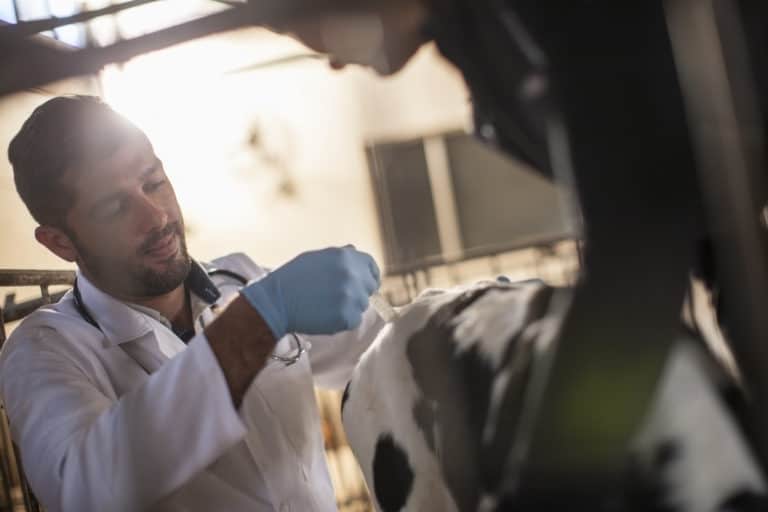So how many of us take added precautions with our vaccines in both summer and winter? I know we try at our place; I have a cooler with ice packs in the summer for keeping the vaccines cool but how about in the winter months? Freezing becomes the next biggest challenge of keeping your vaccines and syringes from freezing.
So, vaccinating your calves during the winter is a risk management tool to help us reduce the rate of respiratory events on our farms.
Vaccines need special handling for different weather events, when using vaccines in sub-freezing weather we need to make sure it does not freeze. Use the same insulated cooler that you used in summer for your winter vaccine procedures as well, only this time fill pop bottles with hot water to keep your vaccines from freezing, I have also used hand warmers in my cooler. Hand warmers can be used for multiple jobs in the calf barn.
Along with freezing; remember to keep yourself dressed appropriately and making sure your fingers stay warm. I know once my fingers and toes are cold, I am done. Find some good, insulated bibs, boots and gloves. I know speaking for myself I have a hard time using a syringe when I have gloves on, and I seem to have my fingers go numb faster when I wear latex gloves too.
We also avoid vaccinating when it is extremely cold, its hard on both animals, yourself, and vaccines.
Adding a cold weather nutrition protocol is also a great idea. Remember calves use a lot of energy to maintain their body core this time of the year. In order for a vaccine to create immunity the calf has to have extra available energy for her immune system beyond just maintenance. Extra stress events drain up extra energy.
Also, avoid vaccinating calves that are either sick or under extreme stress. Again, we revert back to energy needs, if you are also using any antibiotics, I would avoid vaccinating these animals, again the energy they need to fight off any infections takes precedence over vaccinating and draining their system more.
COLD WEATHER REMINDERS:
Keep your milk/milk replacer at a consistent temperature and use a thermometer to measure temperatures when feeding pails, bottles, or auto feeders. Remember temperatures drop drastically in colder weather, what you have mixed might be 10-15 degrees colder when actually fed.
Measure your solids, either feed more volume or increase solid levels for extra calories in winter months.
USE calf jackets, another great way to insulate those babies in cold weather.
Feed a palatable starter, get them on starter as soon as possible, this will ignite that rumen to become an added furnace, giving them extra energy.
I have used hand warmers to warm their extremities if you think they have become frost bitten or froze. Use hand warmers and vet wrap. Easy peasy! Makes me feel better anyway!
If you do not have a heated room, put a heating lamp into a hutch to warm those newborn babies up.
Our new product Habishield-Chlorine Dioxide Drying Powder, can be used for a two-fold purpose, both a drying agent and chlorine dioxide based for a protective barrier against environmental pathogens.
Well with all that being said, lets embrace winter and keep those young calves healthy.
Minnie Ward
Calf Star
507-259-6534

